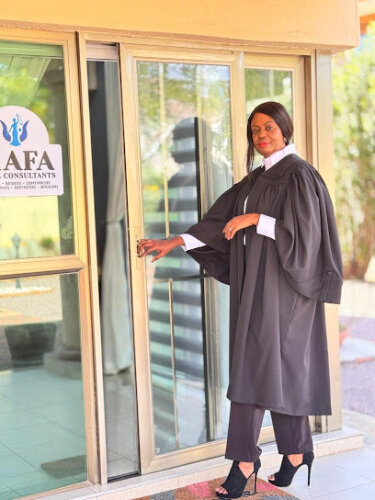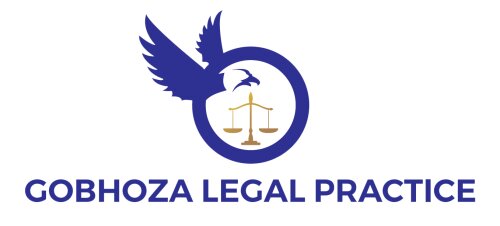Best Government Contract Lawyers in Gaborone
Share your needs with us, get contacted by law firms.
Free. Takes 2 min.
List of the best lawyers in Gaborone, Botswana
About Government Contract Law in Gaborone, Botswana
Government contract law in Gaborone, Botswana governs the legal agreements between private entities and the government for the provision of goods and services. These contracts are vital for ensuring transparency, fairness, and efficiency in the procurement processes. The government of Botswana adheres to strict regulations and guidelines to avoid corruption, ensure fair competition, and uphold the highest standards of public procurement. The Public Procurement and Asset Disposal Board (PPADB) oversees these contracts and ensures adherence to legal requirements.
Why You May Need a Lawyer
Seeking legal advice in the area of government contract law is essential for several reasons:
- Contract Review and Drafting: Lawyers can help draft and review contracts to ensure they meet legal standards and protect your interests.
- Compliance: Legal assistance ensures compliance with local laws and regulations, helping you avoid penalties and contract disputes.
- Bid Preparation: Lawyers can guide you through the complex bidding process, ensuring your bid meets all necessary criteria.
- Dispute Resolution: If disputes arise, legal experts can help resolve issues through negotiation, mediation, or litigation.
- Risk Management: Legal advice can help identify and mitigate potential risks associated with government contracts.
Local Laws Overview
Several key aspects of local laws are particularly relevant to government contracts in Gaborone, Botswana:
- Public Procurement and Asset Disposal Act: This act governs all public procurement and asset disposal processes in Botswana, ensuring transparency and fairness.
- PPADB Guidelines: The guidelines issued by the Public Procurement and Asset Disposal Board provide detailed procedures and requirements for government contracts.
- Anti-Corruption Legislation: Botswana has stringent anti-corruption laws to prevent bribery and fraudulent activities in government contracts.
- Contract Law Principles: General principles of contract law, such as offer and acceptance, consideration, and legality of purpose, also apply to government contracts.
Frequently Asked Questions
1. What is a government contract?
A government contract is a legally binding agreement between a private entity and the government for the supply of goods, services, or works.
2. Who oversees government contracts in Botswana?
The Public Procurement and Asset Disposal Board (PPADB) oversees government contracts in Botswana.
3. How do I bid for a government contract?
You need to respond to a government-issued request for proposals (RFP), adhering to the specific requirements and deadlines outlined in the RFP.
4. What documents are required for bidding?
Bidding generally requires a comprehensive proposal, financial statements, business registration documents, and compliance certificates.
5. Can I challenge a government contract award?
Yes, you can challenge a contract award by filing a complaint with the PPADB and following the prescribed procedures for disputes.
6. How long do government contracts last?
The duration of government contracts varies depending on the nature of the goods or services provided and the terms of the agreement.
7. What are the common pitfalls in government contracting?
Common pitfalls include non-compliance with bidding requirements, insufficient documentation, and failure to understand contract terms.
8. Is it necessary to have legal representation for government contracts?
While not mandatory, legal representation is highly recommended to navigate complex legal requirements and protect your interests.
9. What is the role of PPADB?
PPADB oversees, regulates, and facilitates all public procurement and asset disposal processes to ensure adherence to the law.
10. How do I ensure compliance with local laws?
Ensure compliance by familiarizing yourself with relevant laws, consulting with legal experts, and adhering to the guidelines provided by PPADB.
Additional Resources
Here are some useful resources for navigating government contracts in Gaborone, Botswana:
- Public Procurement and Asset Disposal Board (PPADB): Provides guidelines, resources, and updates on government procurement.
- Botswana Unified Revenue Service (BURS): Offers tax-related information crucial for contractual compliance.
- Botswana Chamber of Commerce and Industry: Provides support for businesses looking to engage in government contracts.
- Botswana Law Society: A resource for finding qualified legal practitioners specializing in government contracts.
Next Steps
If you need legal assistance in government contracts, here’s what to do:
- Consult a Legal Expert: Seek advice from a lawyer who specializes in government contract law. The Botswana Law Society can help you identify qualified practitioners.
- Prepare Your Documentation: Ensure you have all necessary documents ready, including your business registration, financial statements, and compliance certificates.
- Engage with PPADB: Frequently check PPADB announcements and guidelines to stay updated on new opportunities and regulatory changes.
- Compliance Checks: Regularly review your compliance with local laws and seek legal advice to ensure you meet all regulatory requirements.
By following these steps and utilizing available resources, you can effectively navigate the complexities of government contracts in Gaborone, Botswana.
Lawzana helps you find the best lawyers and law firms in Gaborone through a curated and pre-screened list of qualified legal professionals. Our platform offers rankings and detailed profiles of attorneys and law firms, allowing you to compare based on practice areas, including Government Contract, experience, and client feedback.
Each profile includes a description of the firm's areas of practice, client reviews, team members and partners, year of establishment, spoken languages, office locations, contact information, social media presence, and any published articles or resources. Most firms on our platform speak English and are experienced in both local and international legal matters.
Get a quote from top-rated law firms in Gaborone, Botswana — quickly, securely, and without unnecessary hassle.
Disclaimer:
The information provided on this page is for general informational purposes only and does not constitute legal advice. While we strive to ensure the accuracy and relevance of the content, legal information may change over time, and interpretations of the law can vary. You should always consult with a qualified legal professional for advice specific to your situation.
We disclaim all liability for actions taken or not taken based on the content of this page. If you believe any information is incorrect or outdated, please contact us, and we will review and update it where appropriate.
















